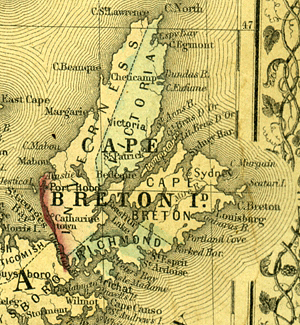
The Gaelic song tradition offers a panoramic cultural expression of unity and diversity. While it has become refashioned in recent times under the more tantalising code of “Celtic” music it remains a robust articulation of a distinctive linguistic and musical heritage. The Gaelic language and the music that is an intrinsic component of it have made a valuable cultural contribution to Canada, and to Cape Breton in particular.
It is interesting that Gaelic songs were first recorded in Cape Breton in the 1930s and 1940s by Helen Creighton, John Lorne Campbell and Charles Dunn while in Scotland Gaelic folksongs were not recorded systematically until 1946, when the Irish Folklore Commission sent a collector to the Hebrides. Cape Breton therefore had a pioneering role in collecting Gaelic songs.
The Gaelic song tradition in Cape Breton, as in Scotland, is wide-ranging and multi-faceted. While oral composition and transmission have played a key part, the impact of the written word and other forms of communication such as broadcasting, and now the internet, cannot be excluded from the relevant influences. Cape Breton’s Gaelic song repertoire falls into three basic categories: a) Songs brought to the New World by Scottish immigrants, particularly between 1770 and 1830; b) Songs composed in Nova Scotia, during and after the 1770-1830 period; and c) Songs learned from publications and from commercial records (particularly the old 78 rpm disks).
Some of the immigrants were bards who had composed songs before they left Scotland and continued to do so in their adopted country. Sadly, since many of those songs were not written down and not passed on orally from generation to generation, they have disappeared.
Many compositions by Cape Breton bards were conditioned by memories of the Highland Clearances, survival in a new and unfamiliar environment, industrialization, and adaptation to different cultures. This collection is representative of the geographical distribution of Gaelic communities throughout Cape Breton. It features different genres of the Gaelic song tradition: songs of love and longing; songs of land, sea and exile; humorous songs; songs lamenting the decay of rural communities; and that iconic expression of Cape Breton’s Gaelic tradition, the milling song. The latter is an example of culture shift. In the days of tweed-weaving when milling, or waulking as they call it in Scotland, was done by women it was women who sang the songs, both in Cape Breton and in Scotland. When milling songs began to be sung for entertainment rather than as work-songs, men took on the singing role in Cape Breton while the women continued to form the song-groups in Scotland.
Another interesting feature of some Cape Breton compositions is the conversion of old Gaelic songs to completely new lyrics. They retain the original melody and sometimes the original chorus but the theme and substance of the verses are different. This collection also includes an example of traditional psalm-singing where a “precentor” chants the line and the congregation joins in. There is no musical accompaniment.
John Alick MacPherson, Educator and Broadcaster
Gaelic Songs
- ‘Illean Bithibh Sunndach The Grand Mira Gaelic Chorus
- A Fhleasgaich Uasail Bessie MacEachern
- A’ Mhairi Bhoidheach Sandra MacNeil
- An Innis Àigh Raylene Rankin
- Canada A Thìr An Àigh Neil MacDonald
- Creach Na Samhna Angus MacLellan
- Cumha Mary Margaret Maclean
- Daolagan Cholarado Donald John MacDermaid
- Dh’Òlainn Deoch À Làimh Mo Rùin Dan Kennie Macleod Malcolm Angus MacLeod
- Dhè Bhetel Tommy ‘Peigi’ MacDonald
- Eilean Gorm Nam Beanntan Àrd Bessie MacEachern
- Fuadach Nan Gàidheal Ross MacDonald
- Ged A Sheòl Mi Air M’Aineol The North Shore Gaelic Singers
- Làithean Sona M’Òige Dan Alex MacDonald
- Mo Nighean Dubh Finlay Cameron
- Mo Rìbhinn Choibhneil Kay MacDonald
- Moch ‘Sa Mhadainn Rinn Mi Gluasad Lauchie MacLellan
- Nighean Donn A Chuil Reidh Jimmy Gillis
- Och Ho Rò, ‘Ille Dhuinn Lauchie Gillis
- Òganaich An Òr-Fhuilt Bhuidhe Lauchie Gillis
- Òran An Dèididh Kenneth Morrison
- Òran Do Cheap Breatainn Malcolm R. MacLeod
- Òran Nam Fasan Alec Goldie
- Òran Nam Mocaisean Jim Charlie MacNeil
- Poit-Dhubh MhicFhraing Angus MacLellan
- Puirt-A-Beul Unknown Singer
- Rinn Mi Còrr Is Naoi Mìle Dan MacNeil
- Tha Mi Sgìth On Tìm Seo ‘N Dè Finlay Cameron Joe Lawrence MacDonald
- Tha Mo Rùn Air A’ Ghille Sandy Campbell
- Tuireadh Nan Hiortach Malcolm Angus MacLeod